How to Learn Russian Cases: The Complete In-Depth Guide with Prepositions & Audio
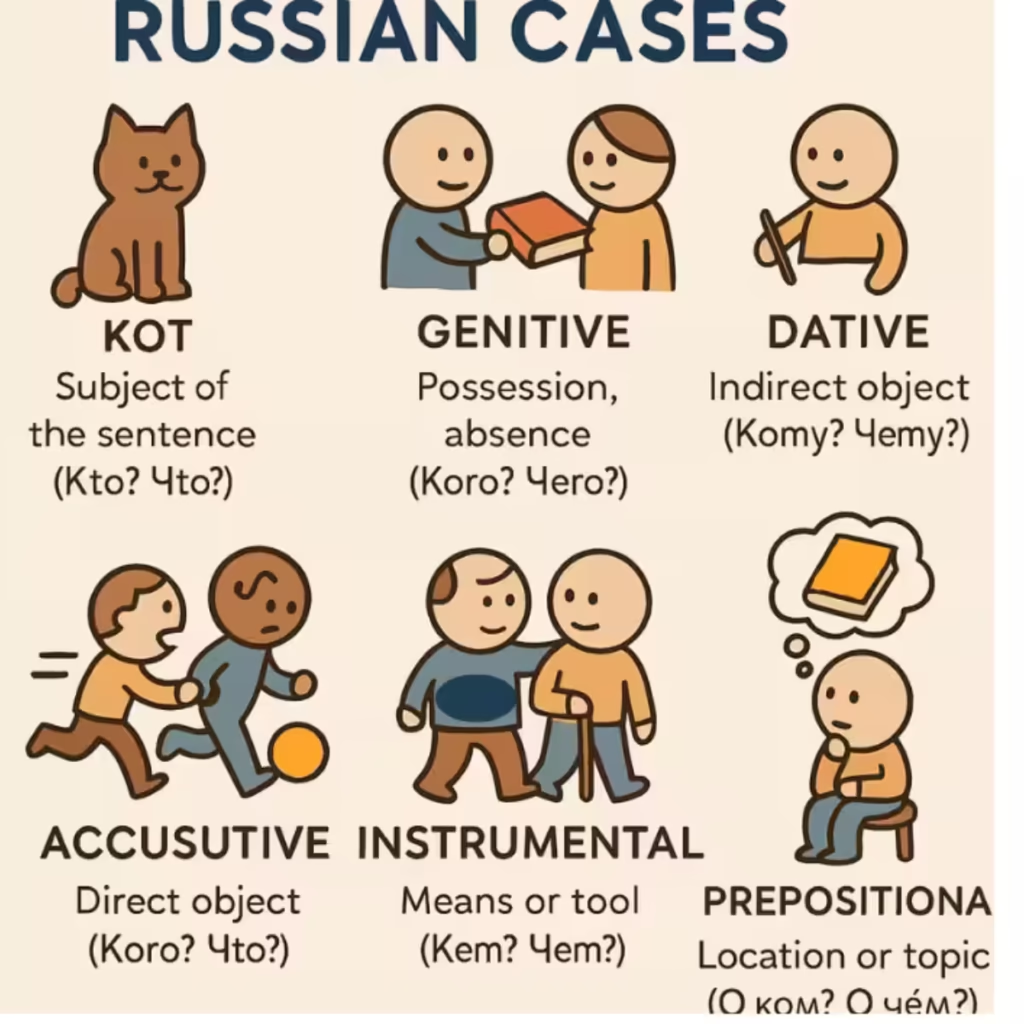
Introduction on how to learn Russian Cases
In this post, I will give you an overview and teach you how to learn Russian cases step-by-step. I recommend choosing one case, learning it to perfection, and only then moving on to the next. Pay attention to where and how they’re used — whether you’re watching videos, listening to Russian podcasts, or reading.
I recently created a Language Learning Podcast where I discuss a topic in different languages, one of them being Russian, if you want to further improve your Russian skills make sure to check it out
How to Learn Russian Cases: All 6 Explained with Prepositions and Triggers
If you’re wondering how to learn Russian cases without getting overwhelmed, this section will walk you through each one with examples, endings, and the prepositions that trigger them.
1. Nominative Case (Именительный падеж)

Use: Subject of the sentence (Who or what does the action?)
Questions: Кто? Что? (Who? What?)
Endings: (as before)
Common Prepositions:
- Nominative is not used after prepositions — it’s the default case.
Trigger words / common uses:
- Subject of a sentence
- Predicate nouns (after “to be” verbs, e.g., “Он — студент.”)
Examples:
- Кот спит. (The cat sleeps.)
- Это книга. (This is a book.)
2. Genitive Case (Родительный падеж)

Use: Possession, absence, quantity, after certain prepositions
Questions: Кого? Чего? (Of whom? Of what?)
Endings: (as before)
Common Prepositions that require Genitive:
- без (without)
- для (for)
- до (until, up to)
- из/от (from, out of)
- кроме (except)
- после (after)
- возле (near)
- около (around, near)
- у (at, by — to express possession)
Trigger Words / Phrases:
- Expressions of absence: нет + Genitive (“У меня нет времени” — I don’t have time)
- Expressions of quantity: мало, много, немного + Genitive
Examples:
- У меня нет времени. (I have no time.)
- Книга брата. (Brother’s book.)
- Он живёт без машины. (He lives without a car.)
3. Dative Case (Дательный падеж)
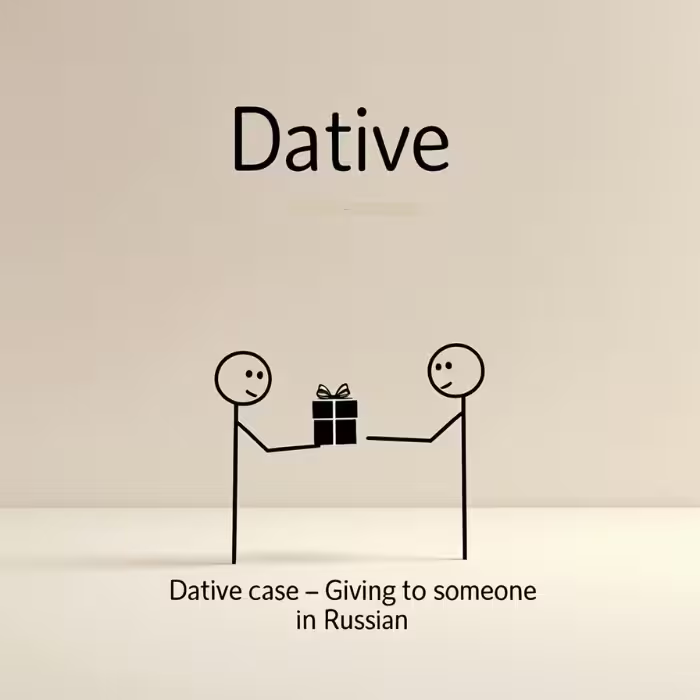
Use: Indirect object (to whom or for whom something is done)
Questions: Кому? Чему? (To whom? To what?)
Endings: (as before)
Common Prepositions that require Dative:
- к (towards)
- по (along, by means of, according to)
- благодаря (thanks to)
Trigger Words / Verbs commonly requiring Dative:
- помогать (to help)
- давать (to give)
- отвечать (to answer)
- советовать (to advise)
- звонить (to call)
Examples:
- Я дал книгу брату. (I gave the book to my brother.)
- Спасибо доктору. (Thanks to the doctor.)
- Он идёт к другу. (He is going to a friend.)
4. Accusative Case (Винительный падеж)
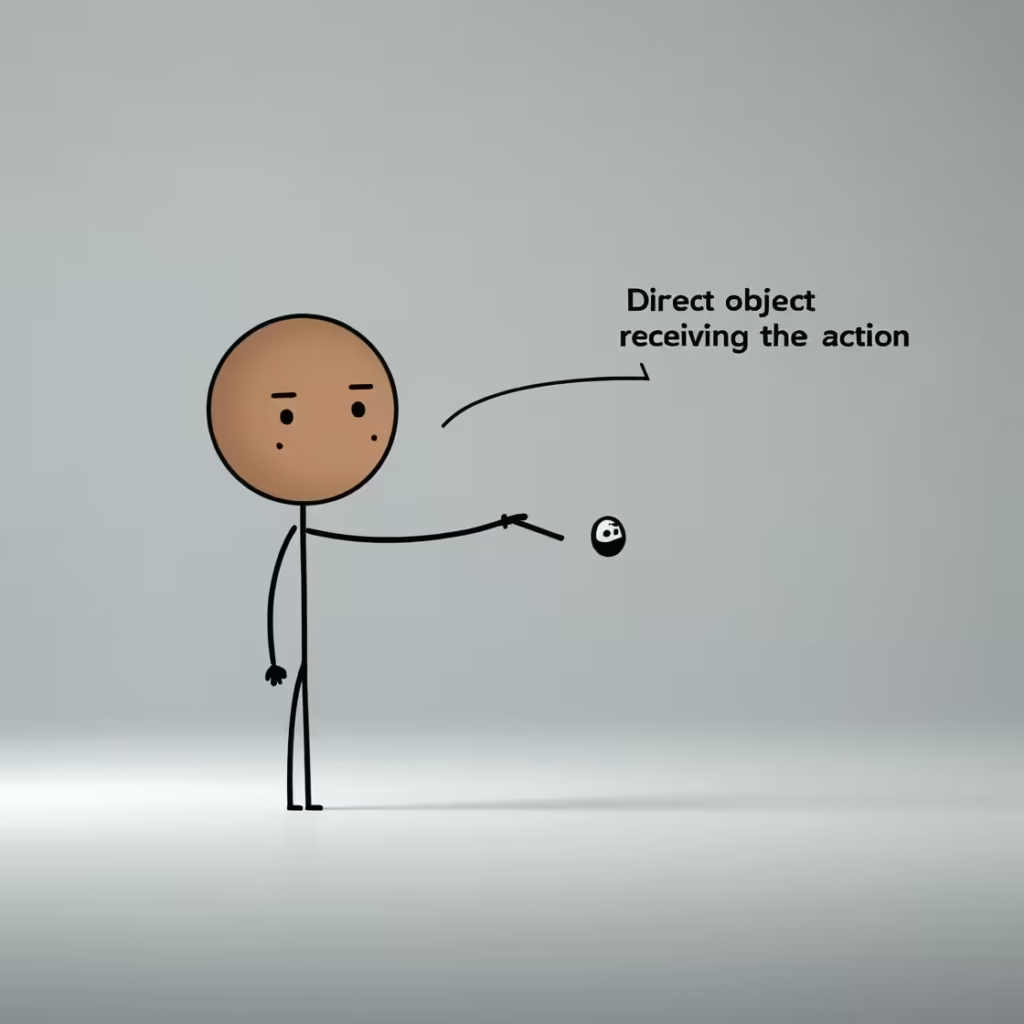
Use: Direct object of a verb (who or what receives the action)
Questions: Кого? Что? (Whom? What?)
Endings: (as before)
Note: Masculine animate nouns take Genitive endings in Accusative.
Common Prepositions that require Accusative:
- в (into, to)
- на (onto, to)
- через (through, across)
- за (behind, beyond — motion towards)
Trigger Words / Uses:
- Verbs of motion: идти, ехать + Accusative with prepositions (в, на)
- Direct objects of action verbs
Examples:
- Я вижу стол. (I see the table.)
- Он идёт в парк. (He is going to the park.)
- Я люблю братa. (I love my brother.)
5. Prepositional Case (Предложный падеж)
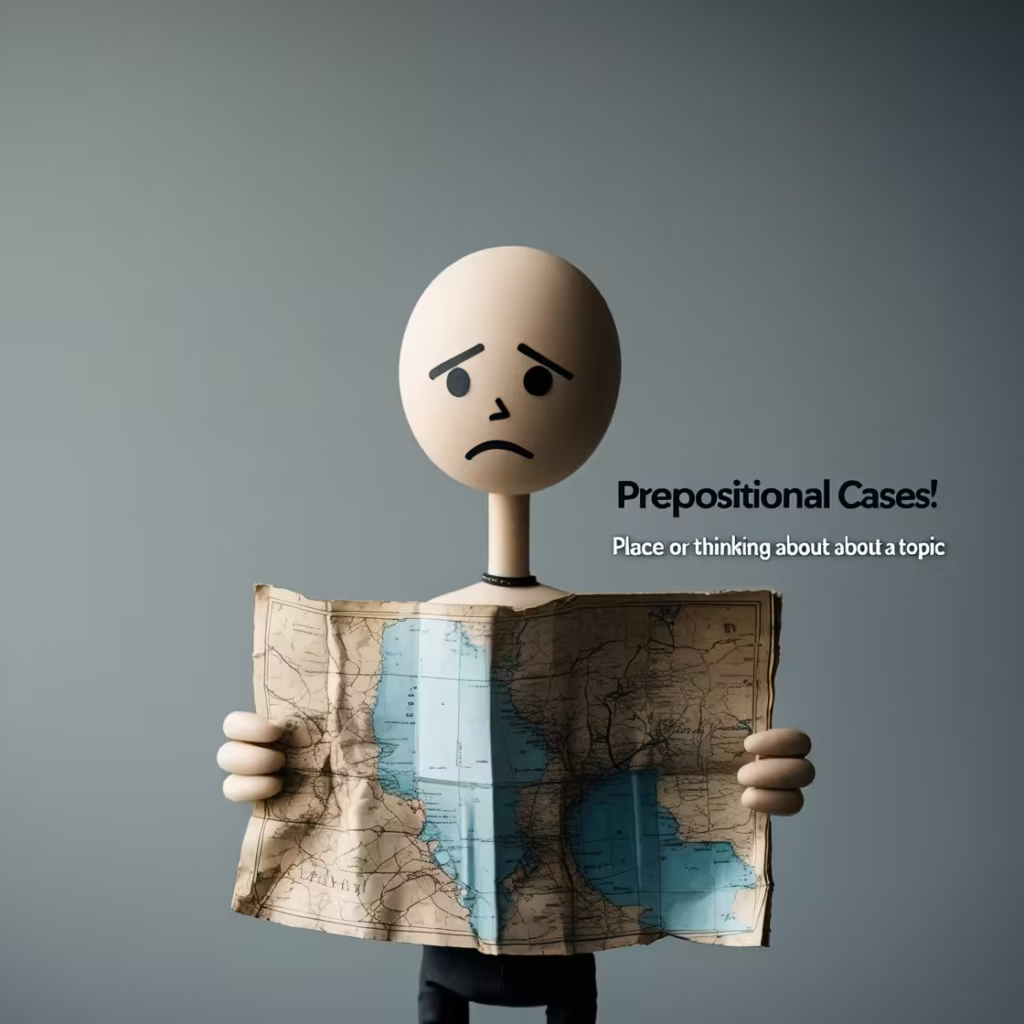
Use: Location or topic (used only after certain prepositions)
Questions: О ком? О чём? (About whom? About what?)
Endings: (as before)
Common Prepositions that require Prepositional:
- о/об (about)
- в (in, static location)
- на (on, static location)
- при (in the presence of)
Trigger Words / Uses:
- Talking or thinking about something (говорить о, думать о)
- Location without movement
Examples:
- Я думаю о книге. (I am thinking about the book.)
- Мы живём в Москве. (We live in Moscow.)
- Книга лежит на столе. (The book is on the table.)
6. Instrumental Case (Творительный падеж)
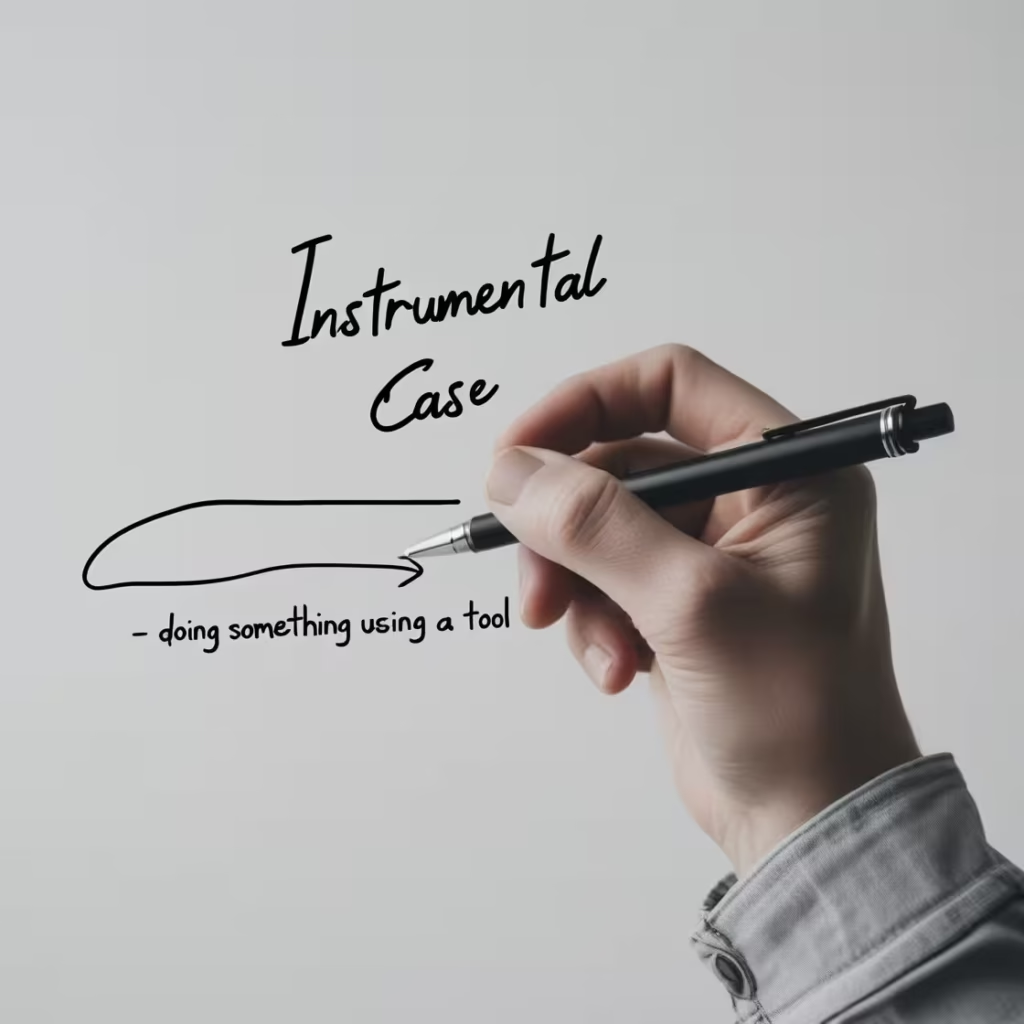
Use: Means or instrument (with what or by whom action is done)
Questions: Кем? Чем? (By whom? By what?)
Endings: (as before)
Common Prepositions that require Instrumental:
- с (with)
- за (behind, beyond — no motion)
- над (above)
- под (under)
- перед (in front of)
- между (between)
Trigger Words / Uses:
- Expressing “with” or “by means of”
- After verbs like пользоваться (to use), владеть (to own)
Examples:
- Я пишу ручкой. (I write with a pen.)
- Она идёт с другом. (She is going with a friend.)
- Он управляет машиной руками. (He drives the car with his hands.)
How to Learn Russian Cases: Common Exceptions to Watch For
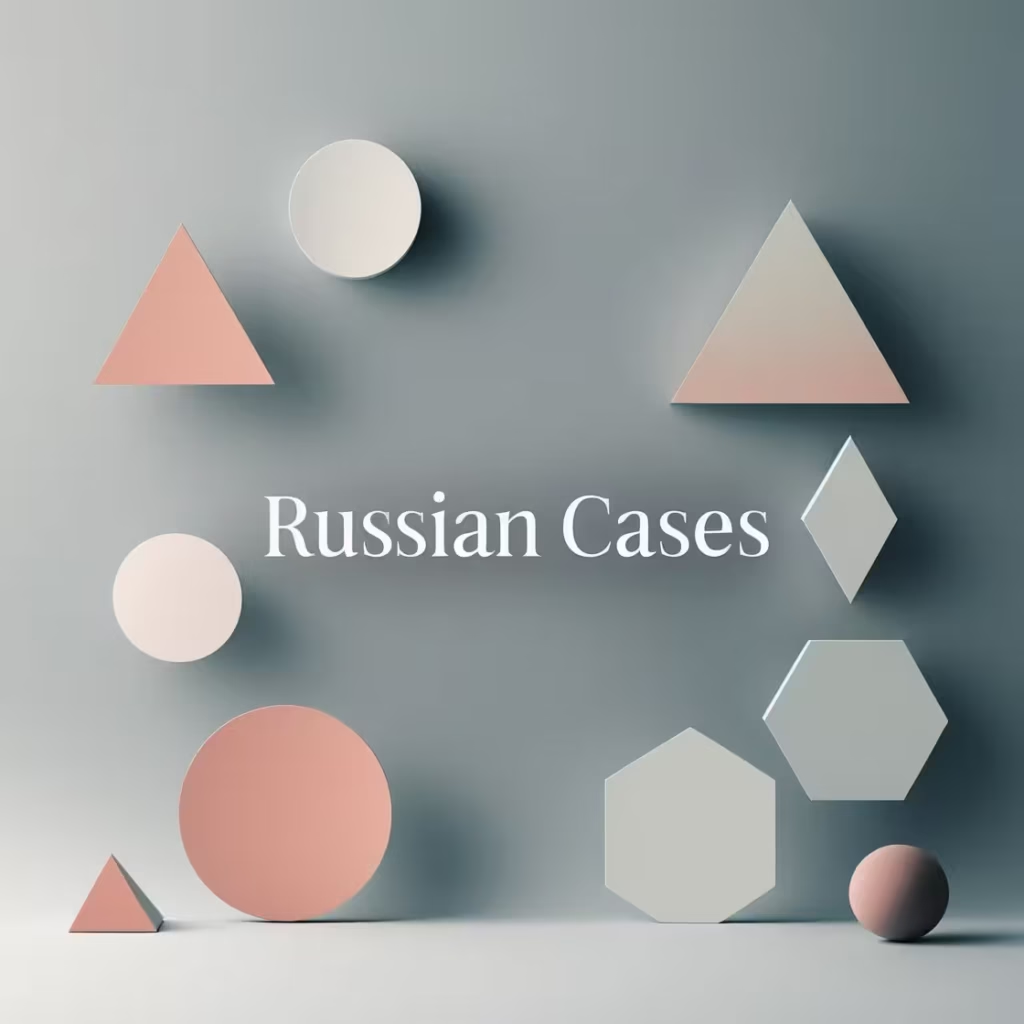
When it comes down to how to learn Russian Cases and overall in the Russian language you must pay attention to exceptions, they are present everywhere. Concerning the Cases, here are some that you should be familiar with:
1. Irregular Nouns with Unusual Endings
| Noun | Remark | Notes |
|---|---|---|
| мать (mother) | Changes stem in some cases | Genitive singular: матери, not матя |
| имя (name) | Neuter noun, irregular ending | Genitive singular: имени |
| день (day) | Masculine with soft ending | Genitive singular: дня |
2. Animate vs. Inanimate Masculine Nouns (Accusative Case)
- Animate masculine nouns take Genitive endings in Accusative (people, animals).
- Inanimate masculine nouns keep Nominative endings in Accusative.
| Case | Masculine Animate Example | Masculine Inanimate Example |
|---|---|---|
| Nominative | брат (brother) | стол (table) |
| Accusative | вижу брата | вижу стол |
3. Plural Exceptions
- Some plural nouns have irregular Genitive endings:
- человек (person) → людей (people)
- ребёнок (child) → детей (children)
4. Soft Sign (ь) Changes
- Feminine nouns ending in -ь change endings differently in some cases.
- Example: дверь (door) → двери (Genitive), дверь (Accusative same as Nominative).
Final Tips on How to Learn Russian Cases More Effectively
- Memorize prepositions with their cases — don’t just memorize endings alone!
- Make flashcards pairing prepositions + case + example sentence.
- Practice using verbs + cases they require.
- Listen for patterns in spoken and written Russian.
- Use Shadowing to improve listening, speaking and reading at once, while paying special attention to the cases used, I made a detailed post about it
Need More Help on how to learn Russian Cases?
Still struggling with how to learn Russian cases? Book a class with me — we’ll practice them together in real conversations so they finally make sense.
